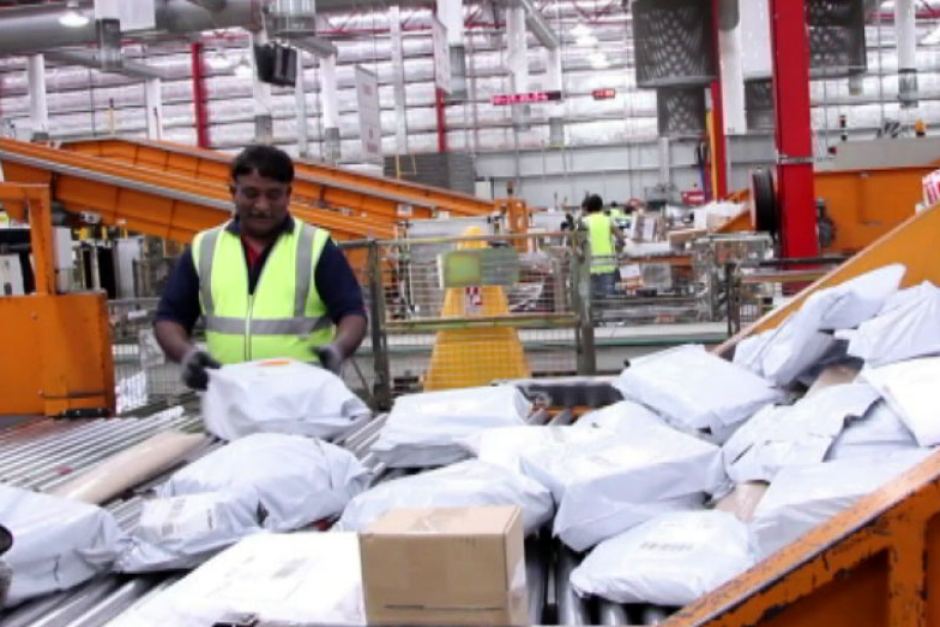As tech enthusiasts some of our most frequented websites (aside from Ausdroid of course) are eBar, Aliexpress and Amazon — always in search of a bargain on tech products. Now if the Department of Home Affairs has its way, that $1 USB-C connector will cost you $6.
At the moment purchases under $1000 for personal use are not taxed, but with close to 40 million sub-$1000 parcels arriving in the country this past financial year the costs of scanning said parcels is increasing. The trend year on year is, as you would expect, rising with this year being a 22 percent increase from last year.
Now, in an attempt to recover some of the costs of bio-scanning/screening this large volume of parcels, the Department of Home Affairs wants to add a levy of around $5 — “in the dollars not the cents” — to all of these low value parcels arriving in the country. A department discussion paper explains it as thus:
As the volume of imported low value consignments continues to grow, so too do the costs of biosecurity, cargo and trade border activities for those consignments. This has created increasing inequity and cross-subsidisation, where importers of high value consignments are paying for the border activities attributable to other users
The department paper also says that it expects the freight and express courier companies to wear most of the tax but unfortunately, as you would expect, these companies have already said that the cost would be passed onto the customers. How this would work for a parcel coming through Australia Post and not a courier is unknown? Would Australia Post have to leave their calling card for you to go and pay the $5 before they would release the parcel?
Freight and Trade Alliance director Paul Zalai has also warned that he expected there to be a backlash from the countries where the packages are originating from. This backlash would be expected to be in the form of taxes on any parcels coming into their country from Australia, not great for our small-medium exporters.
Expect local exporters and the big companies such as eBay and Amazon to lobby the government hard to not implement this recommendation.
At the moment this is just a discussion paper from one of many government departments, but it is a very real possibility that all those eBay items with free shipping will no longer be “free” shipping.
Would this affect you? Do you think it is fair of the government to do it?





This is just insanity. Sure I can see that they want to pay for their scanning but as pointed out your could easy order something tiny and less than $1 in value and it cost you $6. I am guessing it is also on parcels from non-retailers which also is just as bad that you could get a present for a friend or relative and had to pay to receive it.
I thought all goods were charged GST. I know things under $1000 used we’re exempt for a while, but I thought that was changed a few years back.
Meanwhile, politicians keep arguing for tax cuts for the rich….
They already scan faces at the airport, how harder is it to scan for guns or organic materials? You could automate 99% of this and have people check out the iffy ones.
Oh what’s that you say mate , you still have 5 dollars left in your wallet ?
Nah I don’t think you do mate .
It’s sorta funny that personal debt in straya is pretty high and poorer people often manage to get around this by aquiring some items a little cheaper off the net .
Of course this won’t effect pollies that can vote themselves a 20% pay rise on top of their already perked up existences .
I support the tax, I am from Vietnam, next to China hence I know more about cheap Chinese stuffs, for example a PC mouse (cost $20 in 1st world country) was sold for $0.5 or even $0.2 at the factory. Most of them are very toxic with banned chemicals, destroying the environment and causing cancer (please Google “Vietnam had highest cancer rate” because using cheap shit from China). Taxing $5 would helped ethical and local companies to survive, ameliorate local manufacturing activities and consumer health. If you don’t believe me, please order the cheapest Chinese mouses or electronics things on… Read more »
Well firstly Stuffs is not a word in the english language. Secondly clearly you don’t like China and that is your issue but this has nothing to do with what you are saying, 90% of the products are produced in China anyway. A little bit of a news flash for you, the whole world buys cheap shit as you say from China not just Vietnam, you have bigger internal issues to deal with than blaming China for your woes.
Well, I admit that I had expressed my points stronger than it should be so that some mates focused on me instead of the problem, so sorry about that. Let me make it clear. I am not hating China’s products, just hate 5$ China products that are being shipped for free, having no trace of quality and heath standards like RoHS (please google for more info) and else. Apple had made strict supervision of their production activities to be qualified for those standards in global market but nobody was sure about products from AliExpress. Those cheap products littered Australia’s Ocean… Read more »
Do we really need to follow Trump?
40 million x $5 isn’t even that much compared to the low hanging fruit left on the tree.
Negative gearing, capital gains discount, franking credits and refunds, super discounts, tax avoidance by multinationals etc all add up to tens of billions each year.
It’s not about revenue.
You only have to look at NSW, spend 20 to 50 billion building a few roads in Sydney then to save face sell 51% of that for between 2.5 and 5 billion. Throwing away tens of billions is ok but paying for the cost of parcel scanning isn’t How many billions did we throw away on overseaes processing centres to win elections ? All letters etc need to go through scanning. Are they going to start charging this on each and every item that arrives through all shipping processes ? This is yet another brainfart from a minister without a… Read more »
Sounds like a neo-trade tariff to me
$5 is a steep price for goods that could costs cents.
A % of the value might be better. However we pay tons of taxes here as others have said and now they want to add more.
Edit: I originate from a country that does tax imports and its ruined the import market.
From 01 July it’ll cost you $6.60 when the GST imposition starts.
From a policy perspective, I have far fewer issues with the $5 charge per parcel. At least it is sufficiently large to cover both the cost of the screening service and the cost of collecting the payment. The GST imposition is stupid policy because the cost of collection far outweighs the tax collected in the first place.
The Chinese Gov’t subsidise international postage for small business from their special economic zones to encourage exports. Western countries want to punish or cost recover from the political customer base. So ironic. In any event why are they all scanned? Surely that’s not required for safety. Even if it is the machines for scanning are a sunk cost. A per scanned item unit cost is only one arbitrary way to recover costs. There’s many ways to do cost recovery. A fairer method would be a percentage of the customs declared value. Sure some OS companies cheat on this for a… Read more »
Yes, it would affect me. Yes, it seems fair: screening everything sounds like a good idea; I don’t see why the costs shouldn’t be passed on to the people directly using the service. I’d like it if the cost could be kept down, though.
Not fair at all. We pay massive taxes already and yet the government throws tens of billions away on crap then claims we have money problems.
It’s called regressive taxation